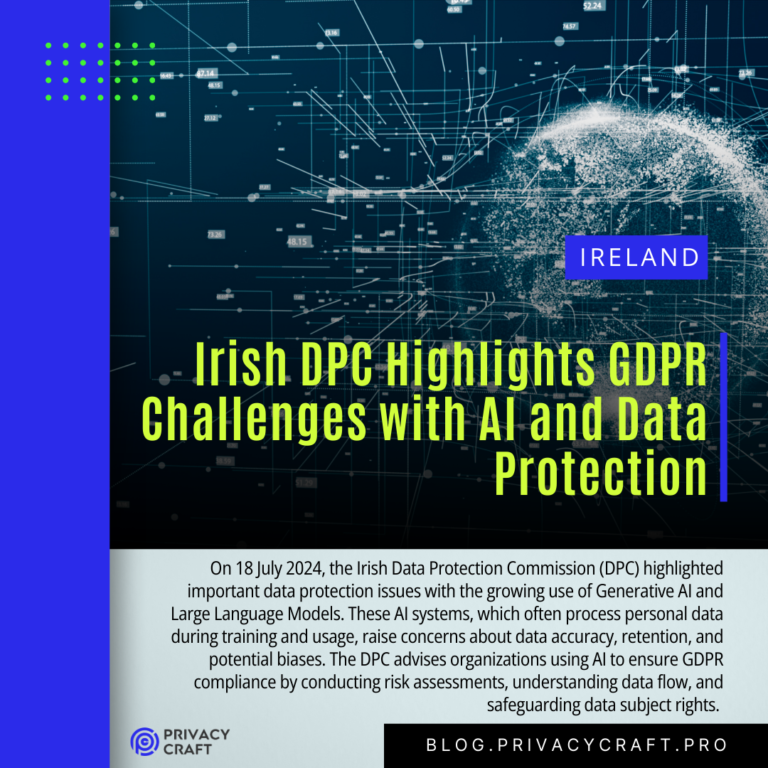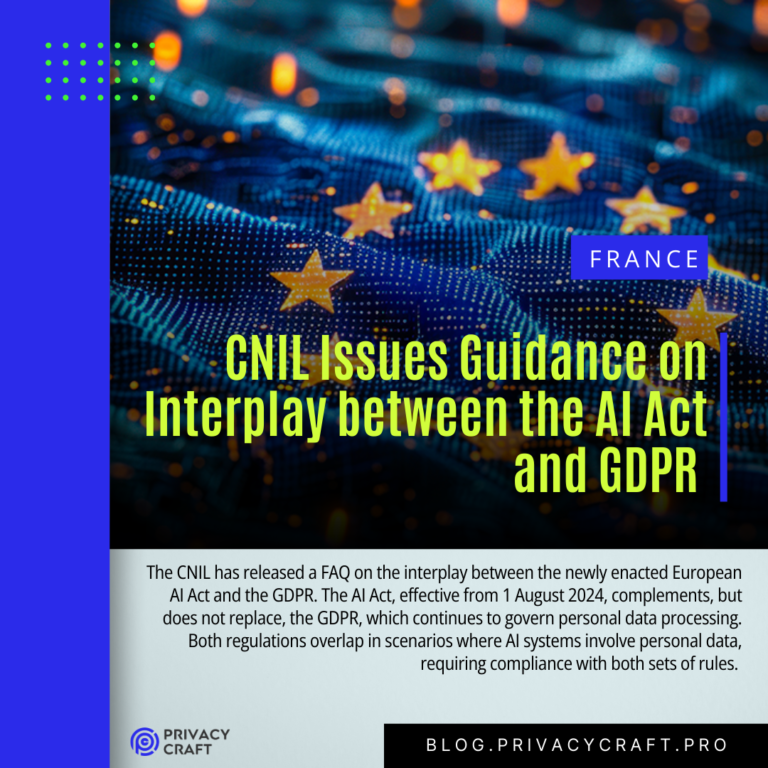CNIL’s Guidance on Deploying Generative AI
On 18 July 2024, CNIL published guidelines for organizations planning to deploy generative AI systems, emphasizing the importance of responsible and secure deployment to protect personal data. Generative AI, capable of creating various types of content, requires large datasets, often including personal data, for training. CNIL advises starting with specific needs, supervising usage, acknowledging system limitations, choosing secure and robust deployment methods, and implementing governance for GDPR compliance. Training and awareness for end users on risks and prohibited uses are crucial to mitigate potential harms and ensure proper handling of data.
CNIL’s Guidance on Deploying Generative AI Read More »




